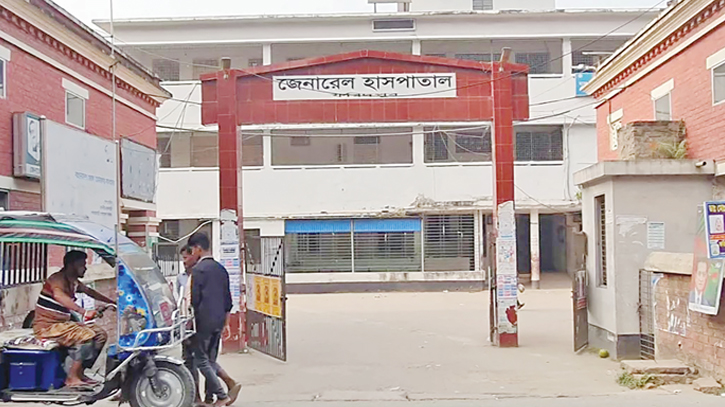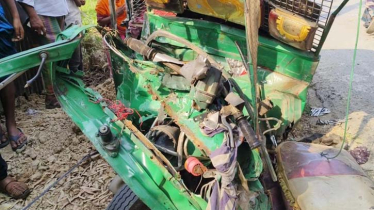
A recent view of Faridpur General Hospital. Photo: Messneger
Faridpur General Hospital (Sadar) is currently facing significant challenges, leading to a decline in its services and reputation. The root of these issues lies in severe doctor shortages and healthcare problems that have persisted for nearly two decades. Originally a vital healthcare facility, the hospital has now lost its former glory.
The hospital, which should ideally have 37 doctors, is now operating with only 10 to 12 individuals on deputation from various upazilas. Many attribute the hospital's decline to the presence of Faridpur Medical College Hospital. Patients are often redirected to the Medical College Hospital before receiving treatment at the General Hospital, leading to a lack of medical services at the latter.
One prevailing sentiment echoed by many is that the presence of Faridpur Medical College Hospital has led to patients being redirected away from the General Hospital, leaving it neglected and underutilized. Allegations abound that certain vested interests within Faridpur have fostered a thriving clinic business, spawning a multitude of private medical facilities along Mujib Road. As a result, patients find themselves compelled to seek treatment at these private establishments due to the absence of adequate medical services at the Sadar Hospital.
Concerns have been raised by retired doctors who, under conditions of anonymity, suggest that certain individuals in Faridpur are engaged in the clinic business. This involvement has resulted in the proliferation of private clinics and hospitals across the city, drawing patients away from the General Hospital.
Furthermore, doctors from Faridpur Medical College are predominantly occupied with private practices or clinics within the city, raising doubts about their dedication to serving the community. This situation benefits private hospital owners while leaving Faridpur General Hospital underutilized.
Patients and their families have reported substandard food quality at the hospital, with meals often failing to satisfy hunger. Hospital authorities attribute this issue to the government-fixed budget of Tk 175 for three daily meals per patient, leading to meager food portions and limited variety.
Hospital authorities defend their actions by citing government-mandated meal rates, claiming that they are bound to provide meals within the allocated budget. However, the meager portions and subpar quality only serve to compound the patients' woes.
In the face of these mounting challenges, the residents of Faridpur demand the restoration of Faridpur General Hospital to its former status as a provider of quality medical services. They pin their hopes on the intervention of the Honorable Health Minister, urging swift action to address the pressing issues of manpower shortages and inadequate food supplies.
Faridpur General Hospital's decline is a result of longstanding doctor shortages, competition from private healthcare facilities, and challenges related to food quality and quantity. Efforts are needed to revitalize the hospital and ensure that it can once again provide quality medical services to the community.
The deteriorating state of Faridpur General Hospital reflects systemic failures plaguing healthcare infrastructure nationwide. Urgent reforms are imperative to address staffing shortages, prioritize patient care, and restore public trust. The collective voice of Faridpur's residents serves as a poignant reminder of the hospital's integral role in community well-being.
Messenger/Faria








